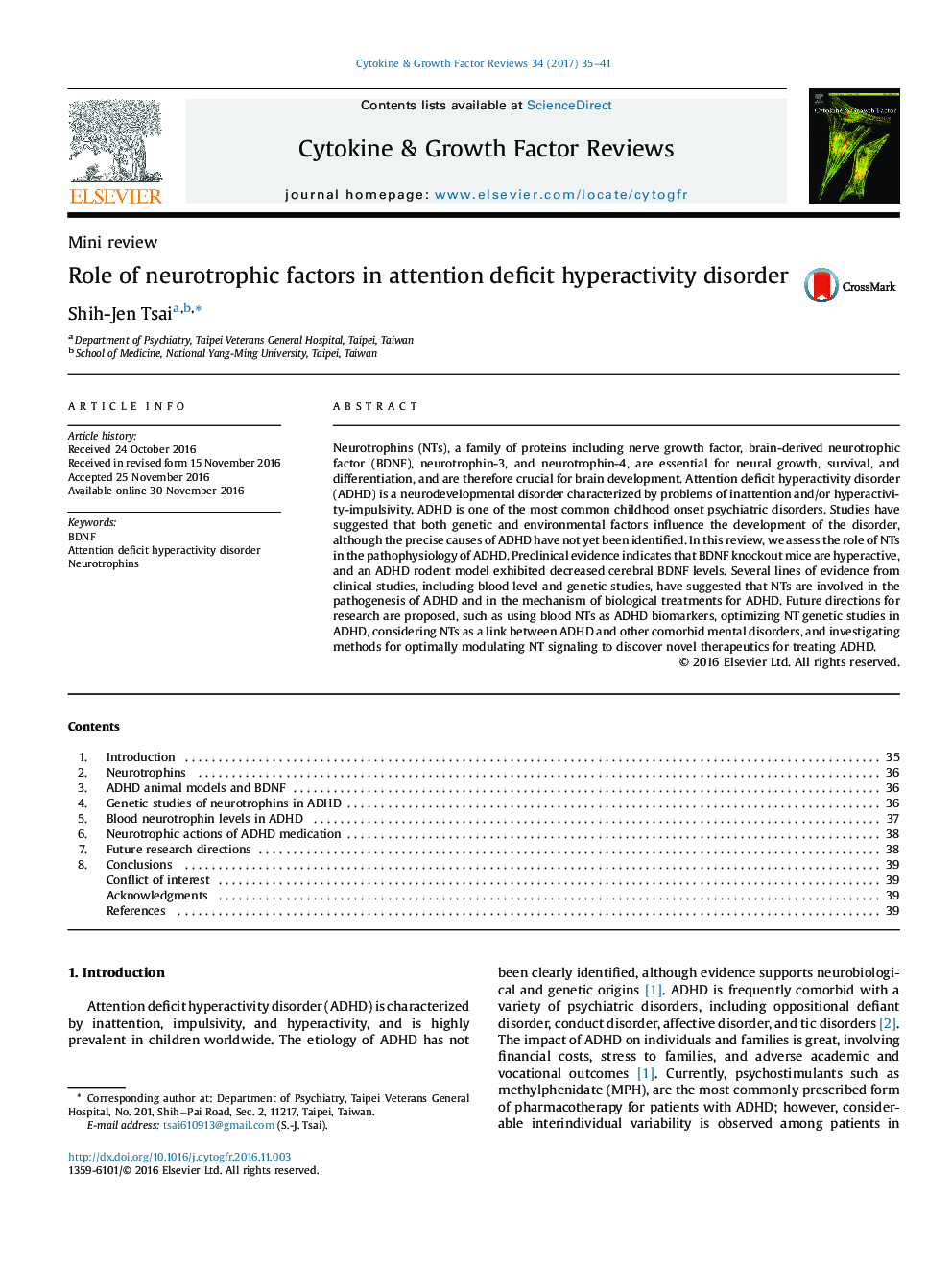| Article ID | Journal | Published Year | Pages | File Type |
|---|---|---|---|---|
| 5531176 | Cytokine & Growth Factor Reviews | 2017 | 7 Pages |
â¢Both preclinical and clinical studies have found neurotrophic factors, particularly brain-derived neurotrophic factor (BDNF), could be implicated in the pathogenesis or therapeutic mechanisms of attention deficit hyperactivity disorder (ADHD).â¢BDNF dysfunction may be the common pathogenic factor for ADHD and its comorbid psychiatric disorders.â¢Modulating BDNF function may improve ADHD symptoms.
Neurotrophins (NTs), a family of proteins including nerve growth factor, brain-derived neurotrophic factor (BDNF), neurotrophin-3, and neurotrophin-4, are essential for neural growth, survival, and differentiation, and are therefore crucial for brain development. Attention deficit hyperactivity disorder (ADHD) is a neurodevelopmental disorder characterized by problems of inattention and/or hyperactivity-impulsivity. ADHD is one of the most common childhood onset psychiatric disorders. Studies have suggested that both genetic and environmental factors influence the development of the disorder, although the precise causes of ADHD have not yet been identified. In this review, we assess the role of NTs in the pathophysiology of ADHD. Preclinical evidence indicates that BDNF knockout mice are hyperactive, and an ADHD rodent model exhibited decreased cerebral BDNF levels. Several lines of evidence from clinical studies, including blood level and genetic studies, have suggested that NTs are involved in the pathogenesis of ADHD and in the mechanism of biological treatments for ADHD. Future directions for research are proposed, such as using blood NTs as ADHD biomarkers, optimizing NT genetic studies in ADHD, considering NTs as a link between ADHD and other comorbid mental disorders, and investigating methods for optimally modulating NT signaling to discover novel therapeutics for treating ADHD.
